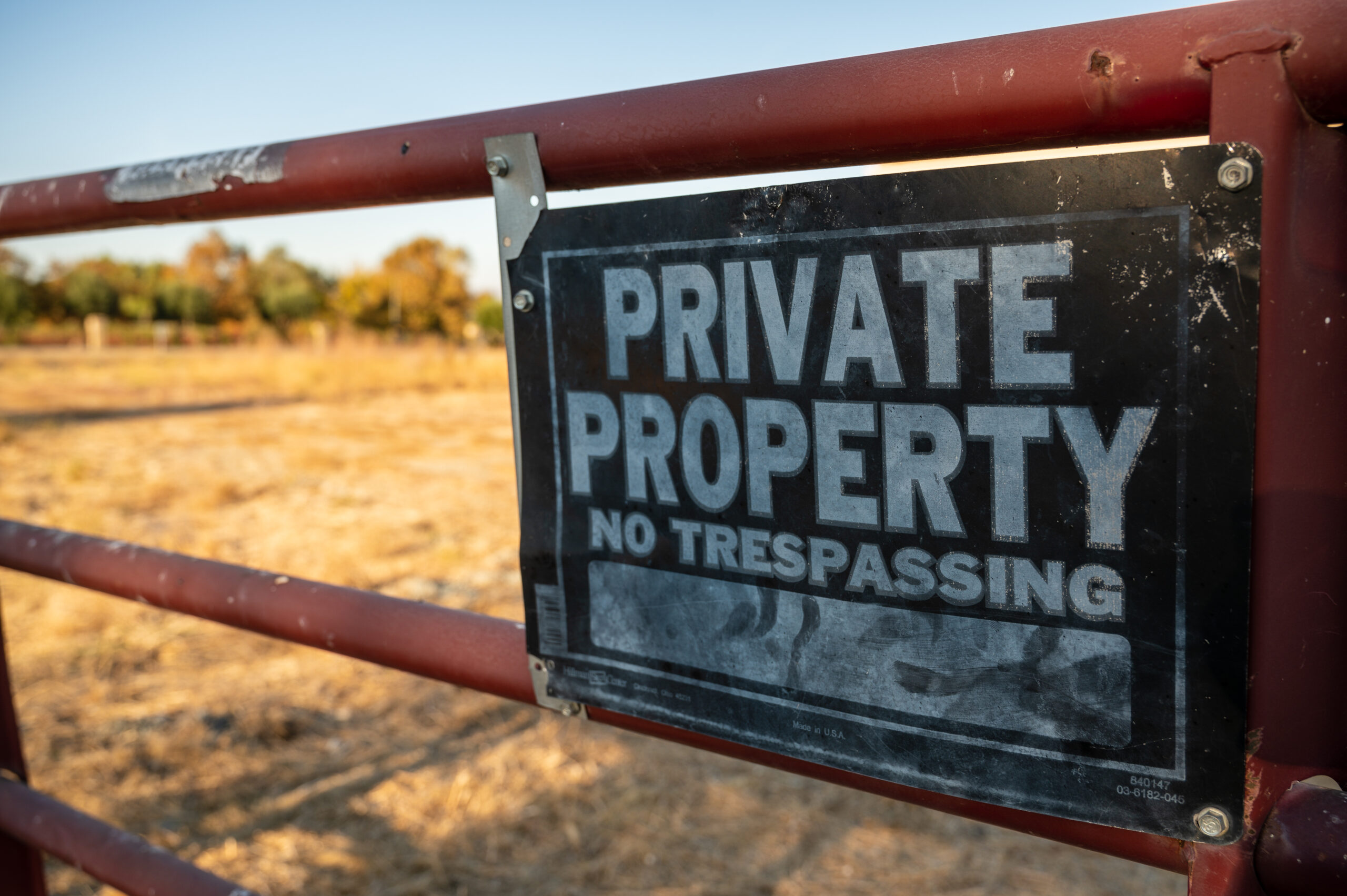Squatters Rights in Australia and What Property Owners Should Know
Get a Quote
It's quick and easy to get a quote.
Simply leave us your name, phone number and what you need quoted and one of our expert conveyancing solicitors will call you straight back.


Can Squatters Take Over Your Property?
Squatters’ Rights is a law that allows someone who has occupied a property without the owner’s permission, to eventually claim legal ownership.
Imagine that you finally decide to visit your vacant investment property after months, maybe even years, only to discover someone else living there. They’ve changed the locks, settled in, and now claim they have the right to stay. This may seem like an unlikely scenario, but it’s a legitimate concern for Australian property owners and landlords. This is why as a property owner, you have to understand squatters’ rights.
What Are Squatters’ Rights in Australia?
In Australia, squatters’ rights are based on the legal principle of adverse possession. This allows a person to claim ownership of a property they’ve occupied without the owner’s consent, provided they meet specific legal requirements:
- Continuous occupation. The squatter must have occupied the property without interruption for a specified period (12 years in most Australian states, except Victoria with a minimum of 15 years, South Australia, and the ACT, which does not recognise Squatters’ Rights)
- Exclusive use. The squatter must treat the property as their own, maintaining and using it without interference.
- Open and obvious possession. Their occupation must be visible and apparent, not hidden or secretive.
Each Australian state and territory have different timeframes and legal requirements for adverse possession claims. In some cases, these laws allow squatters to take over neglected properties because the rightful owner wasn’t paying attention.
The legal framework behind Squatters’ Rights exists so that land isn’t neglected. However, it sometimes leads to unexpected and stressful situations. If you own a vacant home, land, or commercial property, you are vulnerable to a squatter’s claim.
Is Squatting Legal in QLD?
Squatting is illegal in Queensland, but that doesn’t mean adverse possession claims are off the table. If someone unlawfully enters and occupies your property, they are committing trespass and may face criminal charges. However, if they remain on the property long enough, and if they meet the legal criteria as listed above, they could eventually make an adverse possession claim.

As the landowner, you have to stop a squatter from reaching the point of making an ownership claim. This requires vigilance and swift legal action, including contacting law enforcement, giving a formal eviction notice, or file a lawsuit to legally remove the squatters from the property on a judge’s order.
How Can a Person Claim Squatters’ Rights?
To make a valid adverse possession claim in Australia, a squatter must meet several strict conditions:
- Meet the requirements: Squatters must meet the minimum requirements of continuous occupancy, exclusive use, and open, obvious possession of the property.
- Gather evidence: The squatter needs to show proof of their long-term, exclusive use of the property. This could include:
-
- Utility bills or council rates in their name
- Records of property maintenance or improvements
- Witness statements confirming their occupation
-
- Submit a formal application: Once all the conditions are met, the squatter must apply to the relevant state or territory’s Land Titles Office. This usually involves lodging a formal claim for adverse possession and providing supporting documents.
- Wait for the claim assessment: The land titles office will assess the claim, and the legal owner (if traceable) may be given an opportunity to dispute it. If the claim is successful, ownership of the property can be transferred to the squatter.
What is the Minimum Time Requirement for Squatters’ Rights?
The minimum time required for adverse possession varies across Australia:
- Queensland: 12 years
- New South Wales: 12 years
- Western Australia: 12 years
- Tasmania: 12 years
- Northern Territory: 12 years
- Victoria: 15 years
- South Australia: not recognised
- Australian Capital Territory: not recognised
These long timeframes might seem reassuring, but the risk lies in neglecting or failing to monitor your property for extended periods. Even if you think your land or home is secure, a squatter could take advantage of your absence.
Can Tenants Claim Squatters’ Rights?
When tenants overstay their lease or stop paying rent, the line between tenants and squatters blur. However, there’s a very clear distinction: tenants had a legal agreement with the property owner, while squatters do not.
Tenants were granted rights through a formal lease or rental agreement, and their presence on the property is legal as long as that agreement remains valid. Squatters, on the other hand, occupy a property without any permission or legal documentation.
That said, the situation becomes more complicated when a tenant remains in the property long after the lease ends, especially if the owner fails to take timely action. In some cases, a tenant who stays on without a renewed agreement and continues to use the property exclusively and without objection from the owner could potentially claim adverse possession over time. This risk increases if the property owner neglects to enforce their rights or monitor the situation.
For property owners, the lesson here is clear: address any lease violations, overdue rent, or unauthorised occupancy immediately. Failing to act risks financial losses and opens the door to potential adverse possession claims, especially if a tenant remains in the property long enough without facing legal challenge.
How Can Property Owners Protect Their Property?
The good news is that there are steps to safeguard your property and avoid the nightmare of dealing with squatters’ rights claims. Stay proactive and diligent so nobody claims adverse possession over your land or property.

- Conduct regular inspections: Check on your property frequently, especially if it’s vacant. Schedule inspections every few weeks to see that there are no signs of unauthorised occupation or damage.
- Secure your property: Doors, windows, and gates should be locked and in good condition. Consider installing security systems, cameras, and motion-sensor lights to deter potential squatters. If you live far away, hiring a property manager is also a good idea.
- Maintain your land: Overgrown, neglected properties are more attractive to squatters. Keep your property well-maintained, mow the lawn, trim hedges, and remove rubbish to show the land is cared for.
- Post clear signage: Install signs that indicate private property and no trespassing. Visible signs make it clear that the property is not abandoned and warn others against unauthorised entry.
- Enforce lease agreements: For tenanted properties, address any tenant issues promptly and legally. Make sure that your rental agreements are up-to-date and that tenants understand their obligations.
- Act swiftly: If you discover unauthorised occupants, seek legal advice immediately by issuing a formal eviction notice and applying a court order for posession. The longer squatters remain on the property, the more difficult it becomes to remove them, so if necessary, also engage law enforcement to help remove trespassers from the premises.
- Engage property managers: If you own multiple properties or live far away, hiring a property manager helps facilitate regular inspections and maintenance to be carried out.
- Secure vacant properties: If your property will be vacant for an extended period, consider installing temporary fencing or boarding up access points to prevent entry.
Removing squatters legally requires following the proper process, which include issuing formal notices and applying for possession orders through the court.
Attempting to evict squatters without legal backing leads to further complications, including potential legal action against you. Seeking professional legal advice early helps you follow the right steps and protect your rights as a property owner.
Are You Ready to Safeguard Your Property?
Understanding squatters’ rights in Australia helps protect your property so you avoid unnecessary legal battles. By staying vigilant and taking proactive measures, you prevent squatters from gaining a foothold on your land.
If you’re facing a squatter issue or want to safeguard your property, seeking professional legal advice is your best move. Make an appointment with a qualified property lawyer to help you protect your rights
